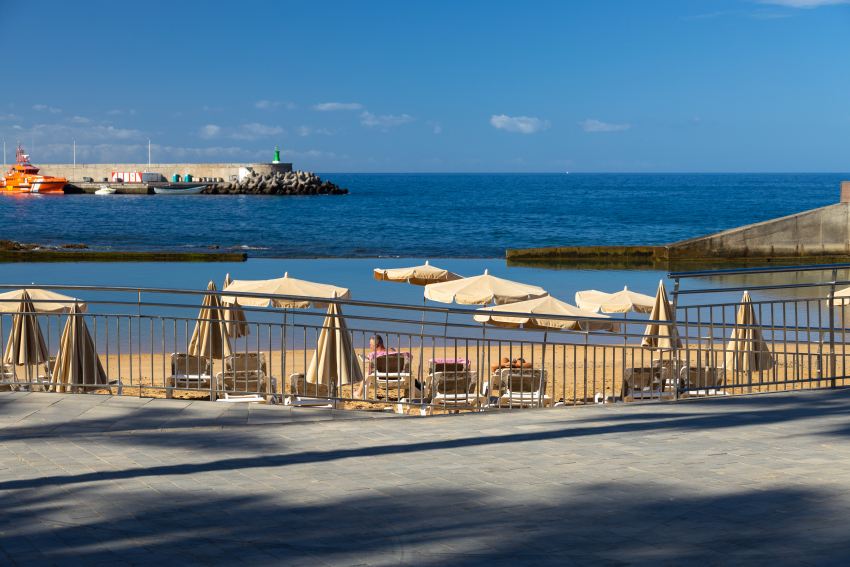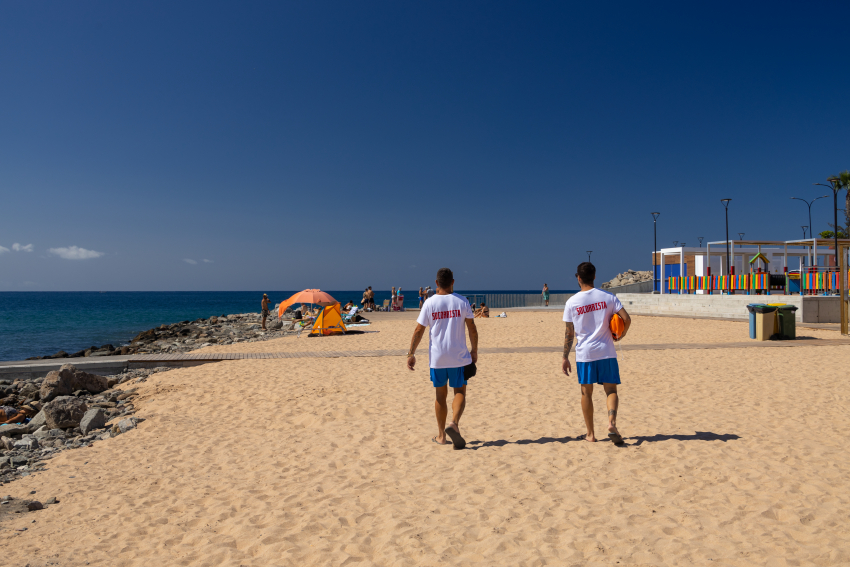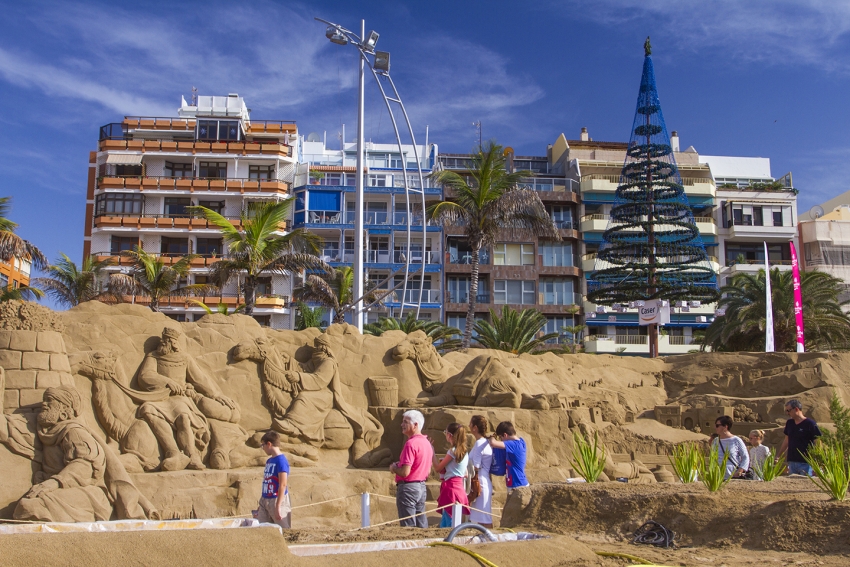Living In Gran Canaria: Really Useful Websites
Here’s a list of useful websites about Gran Canaria that we use all the time.
Living In Gran Canaria: Property Tax Guide
 Buying a property in Gran Canaria costs about 10% of the price you pay once you factor in taxes and fees. Selling a property involves some costs but these only add up if you profit from the sale. The annual tax burden of owning a property in Gran Canaria is low.
Buying a property in Gran Canaria costs about 10% of the price you pay once you factor in taxes and fees. Selling a property involves some costs but these only add up if you profit from the sale. The annual tax burden of owning a property in Gran Canaria is low.
Article by Gran Canaria estate agent Laura Leyshon from Las Palmas property.
Here is a summary of all the annual property taxes you have to pay in Gran Canaria.
IBI: An annual property tax set by the local Ayuntamiento that is between 0.5% and 1% of the official value of your property (much lower than the market value). The IBI rate in Las Palmas is currently 0.73% while other municipalities charge slightly different rates..
Other ongoing costs...
IBI is the only monthly tax cost that you have to pay in Gran Canaria (San Bartolomé de Tirajana charges an annual rubbish collection tax). However, if you live in a building or a complex you have to pay a monthly communidad fee which is your share of costs like communal electricity, lift and pool maintenance and insurance.
The amount varies depending on the building and the facilities and services it offers.
Non-resident property owners must pay income tax on any rental income, plus IGIC (VAT) if they rent their property on a short -term basis. Even if a non-resident property owner doesn’t rent out their property, they still have to pay a small annual Sunshine tax.
Some municipios, such as Mogán charge an annual rubbish collection fee.
Gran Canaria property taxes at purchase
ITP or re-sale purchase tax
Buyers of re-sale property (as opposed to a new build) are required to pay the Impuesto de Transferencia de Propiedad which is 6.5% of the price paid for the property.
New Properties purchase tax
This is currently 7% if the house is finished or is being built at the time of the purchase. It is paid by the buyer.
A property buyer only ever has to pay one of the above two taxes.
Other Gran Canaria property purchase fees
While not strictly taxes you also have to pay Notary fees (around 300 euros for most properties, more if you buy with a mortgage) and Property Registry fees (around 300 euros). Most buyers use a Gestoria to handle the paperwork associated with a purchase (they charge around 250 euros).
Along with the 10% taxes and fees, you’ll need a minimum deposit of 10-20% if you get a mortgage (30% for non-residents) and 300 euros to pay for a valuation of the property you want to buy. Spanish banks also insist that you take out life insurance and property insurance at the same time as the mortgage. Legally your mortgage provider cannot force you to take out their insurance. However, it makes the whole process smoother if you do. You can always change to a better deal after a year.
Gran Canaria property taxes at sale
Plusvalía municipal
Paid by the seller to the Ayuntamiento where the property is located, this is also called the impuesto sobre el incremento de valor de los terrenos de naturaleza urbana (IIVTNU).
You pay plusvalia on the increase in value of the land that a property occupies during the period that you own it (capped at 20 years) and the amount varies depending on the period of ownership and the rates set by the Ayuntamiento.
Incremento patrimonial
Capital gains tax paid to the Spanish Treasury; Based on the difference between the sale price and the price paid by seller when he/she originally purchased the property (you can offset costs of improvements so keep your new kitchen and bathroom facturas).
As of 2016, the capital gains tax rate in Gran Canaria is 19% for the first 6.000 Euros, 21% from 6.000 to 50.000 Euros and 23% from that last amount upwards.
However, one advantage of the fall in Gran Canaria property prices over the last 10 years is that few sellers have to pay capital gains tax.
Tax exemption
Avoid paying capital gains tax by reinvesting the money from the sale of a main residence property into another main residence property within two years. EU nationals, even non-residents, can also avoid this tax if they buy a new main residence property anywhere in the EU within two years.
To claim the exemption you need to be able to prove that a property has been your main residence. A good reason to get a ‘certificado de empadronamiento’ certificate from your Ayuntamiento as soon as you buy your house.
Mortgage cancellation fees
If you cancel a mortgage when you sell a property, expect to pay 1% or more of the outstanding balance for the privilege, plus up to 1000 euros to register the cancellation at the Notary and Property Registry. You can sometimes pass the mortgage on to the buyer if the terms are acceptable.
Living In Gran Canaria: Guide To Driving Well
Driving in Gran Canaria isn't so bad but there are a few things you need to know to avoid scares and fines.
Let’s start with avoiding fines as you can be fined for almost anything here, and knowing what fines exist will make your stay a lot cheaper.
Parking – don’t park on a yellow line. They will catch you and they will fine you.
Single white lines – If there is a single white line in the middle of the road you can’t cross it.
Carry all your documents ALL the time. The police can stop you anywhere and ask to see your paperwork.
You need...
Your permiso de conducir (driving license). This can be downloaded onto your phone on the Tráfico app.
Your permiso de circulación (Car certificate)
Your insurance AND the last bank statement showing you have paid it. If you don’t have the statement you can be fined. However, the police can now access this information from their cars so some insurance companies don’t issue papers any more.
Your ID (DNI or passport) – They can fine you for not having it.
Your last road tax payment.
You need to carry at least 2 flourescent bibs. One for the driver and one for each passenger. (buy them in the Euro shop or in a garage)
You have to have a triangle in case you have an accident.
Now the driving – Spanish drivers are fine. They are not the aggressive, erratic Seat Marbella driving lunatics you see on TV. However there are a few subtle differences in their driving that are worth knowing before you venture out on a Canarian road.
They use horn a lot, and will shout and gesticulate at you for no particular reason. Unless you have cut them up smashed into their new Seat or driven them off the road, ignore them – some people just like to overreact.
Gran Canaria drivers have no idea how to use a roundabout because in the Canarian driving test they are taught that any car in the outside lane has priority. Therefore, if you are going round the inside of a roundabout and someone overtakes you on the outside and you crash into them when you are leaving the roundabout, you will have a hard time convincing them it is their fault. You can try and use the inside lane if you want to be pedantic but its safer to always use the outside lane
Reverse parking – get good at it. Unless you want to pay extortionate Canarian parking fees you are going to need to know how to fit your wheels into a space designed for a bicycle.
But don’t be afraid driving in the Canary Islands. In general, it is no different from anywhere else and far easier than London. If you want to go up to the mountains though make sure you have a good head for heights, some of the roads in the south and on the north coast have over 1000 metre sheer drop on one side! The views are pretty spectacular though and it’s well worth soiling your pants for a bit to see them.
It is polite to pull over if you are driving the car that is holding up a load of locals on mountain roads.
Renting a car in Gran Canaria
If you choose to explore Gran Canaria by car, take all the hassle out of renting by using Mr Car Hire Gran Canaria...
Mr Car Hire, an independent rental broker, offers a complete Gran Canaria hire car service with car-to-door delivery anywhere on the island, fully comprehensive insurance and 24/7/365 support.
Best of all, he does it at great prices and offers top service, no queues, dirty cars or long waiting times.
Rent your car via Mr Car Hire and you'll get:
- A wide choice of cars at reasonable prices with absolutely no hidden extras
- Delivery to anywhere in Gran Canaria and car collection anywhere on the island
- Comprehensive insurance and 24/7/365 support and breakdown cover
- Personal service and a completely stress-free car rental experience
Contact him right here and Mr Car Hire be right back in touch.
Living In Gran Canaria: Finding A Job
Everyone wants to move to Gran Canaria, find a good job and live the sunny life. It can be done, but we’re not going to kid you that it’s easy. Gran Canaria is a small island with lots of local unemployment.
This means that there aren’t lots of large companies with middle-management structures and there is fierce competition for the jobs that do come up.
Your chances of getting a job in the local economy are pretty much zero unless you speak excellent Spanish. And you can’t just walk into a job in a hotel either. Most won’t take a candidate unless they speak at least three languages and have a tourism qualification or degree.
That said, determined people find work here every year, and there are several niches where foreign residents can always find work.
So you want a job, read our guides below to see what jobs are available and how to get them.
UPDATE 2022: Remote work, nomads and coworking
Job prospects for foreigners in Gran Canaria, and especially in Las Palmas, have improved no end in the last few years thanks to the growing remote worker and digital nomad scene. Focused around coworking sites dotted all across the city and beyond, the scene has now grown enough to create its own employment ecosystem. The hope is that ZEC company investment will flow in and make even more of a Gran Canaria a leading remote work and offshoring location.
That said, the work available is almost all digital; in the programming, online project management, etc. The nerds have arrived, and are taking over!
Spain's tax rules are a little behind when it comes to people residing in Spain but earning their living abroad so talk to a gestoria about how to get your taxes right.
Jobs in North Gran Canaria (Las Palmas, Telde etc)
Once you arrive in Gran Canaria you will find that most English speaking people in Las Palmas are teachers, so logically most of the jobs for English people are in schools. If you don’t want to be a teacher, you’ll probably have to head south to find a job as there aren’t many non-school jobs in the city. That said, the island has now probably reached peak English and teaching wages for TEFL teachers have dropped in recent years.
Teaching There are four types of teaching jobs each one requiring different qualifications and offering different pay.
English schools – These schools, most of the time, require a PGCE. However, it is not unheard of for unqualified people to get jobs. Send in your CV and see what happens. If you’re lucky they will need a teacher straight away. Monthly salary 1200€-1400€ depending on the school and job.
Bilingual schools – These schools don’t usually require PGCE qualified teachers but a TEFL qualification helps. They pay less and working conditions aren’t as good, but you get the long holidays. Salary approximately €1200.
Language schools – Language schools pay less and the working hours can be quite unsociable however they pay well enough to live a nice life here and can be flexible with working hours if you’re lucky. Salary/hour 9-15€.
Private English lessons – Plenty of teachers make a decent living by giving private English lessons. Either to children, adults or local companies. They key to getting them is to network and hustle like crazy. Pay can be anything from 10-50 euros per hour. Most private teaching work dries up in the summer.
Read our detailed guide to Gran Canaria’s schools and education system for more info.
Saturday Schools All the English Schools and the American school offer Saturday schools for children and adults. They pay very well €60-€80 9am -1pm. If you are interested contact the schools well before the course starts in October as Saturday jobs go fast. TEFL is preferred but it is not uncommon for non-EFL teachers to get work.
Translation If you speak two languages fluently it is worth sending out your CV to the translation companies. However, regular translation work isn’t easy to find and you need a qualification to translate official and legal texts (known as traducción jurado).
Summer schools: Lots of Las Palmas’ academies and surf schools run summer schools so it’s always worth asking around if you want work in July.
Random work in Las Palmas: Non-Spanish speaking work is hard to come by but labouring work can sometimes be found within the English community. It’s not easy to come by, but leave a message on the jobs page and something may come up. Other jobs that English people have had in Las Palmas include STEP / Aerobics instructor and bar work.
There are, of course, lots of foreigners living and working in Las Palmas who aren’t teachers. It’s just that most came to the island with their jobs. In the last few years the digital nomads have discovered the city and now hang out at cafes with their laptops (pretending to work). If you have a tech or design skill and want freelance work, drop in at coworking spaces like The House and Soppa de Azul and ask around. The same applies if you have a killer idea for an app.
How to get work in the north
Assuming you want to teach, the only real way to get work is to get yourself known. Send your CV to all the schools / language schools you’re interested in and then phone them (v.important) to make sure they’ve received your CV. It also helps to ‘just drop in’ to the schools you most want to work at.
If you want to teach private classes put posters up around your area and advertise yourself in the English bookshops Idiomatika and Canary Books and on the Internet at Tusclasesparticulares. Get business English lessons by dropping into to local businesses that sell to foreign clients and asking if they know anyone who might be interested.
Seriously, networking in person works in Gran Canaria while emails are rarely answered.
Jobs in south Gran Canaria
There are plenty of jobs in the South but you have to look for them; as Gran Canaria is such a great place to live there are plenty of other people looking too. Thousands of foreign residents arrive every year without work.
Websites / Press Jobs are not often advertised but before you begin your long trek around the thousands of bars in the south it is worth scouring the internet and resident newspapers and magazines.
PR If you think you’re a good salesman with experience of any kind and you speak English, Dutch, German or any Scandinavian language your best bet is find a job as a PR. These tend to be on the street directly selling to passers-by. You could be selling restaurants, bars, tours or timeshare. If you're good you can earn good money, if you’re not you’ll soon be looking for another job! Salaries can be commission only or with a basic set wage. To find a job, the best thing you can do is go and ask. Try bars and restaurants and for timeshare jobs find a current PR on the street and ask for the personnel office. It might sound unbelievable but timeshare sellers still make good money in south Gran Canaria. The gift of the gab is essential.
Bar work and restaurant work There are jobs for bar staff, waiters, cooks, entertainment, bouncers, and PR – they are rarely advertised and again just go around and ask. Don’t expect to make your millions this way, the minimum wage in Spain is 6.25€ and you’ll be lucky to get more than that. On average workers in the South will earn about 1050€ a month which is plenty to survive on and have a reasonably nice time.
Estate agencies Property buyers still prefer to deal with agents who speak their language and understand their needs. So, there is always work in south Gran Canaria’s estate agencies for go-getting people with sales or real estate experience. Quality south Gran Canaria estate agency Cárdenas Real Estate have been looking for English- and Norwegian-speaking staff.
How to get work in the south
There is work in the south of the island but there are more people looking for jobs than there are jobs, so to find work you have to stand out above the rest. Prepare a GOOD cv. Make sure it sells your skills well and is word-perfect. If you want to work in a bar make sure you have all your bar work on it.
Then give your CV to as many places as possible by hand. Speak to the owner and try to sell yourself, it will be much easier for them to call you if they know who you are, so make sure there’s a photo on your CV. If you haven’t heard anything for a couple of weeks visit all the bars again and let them know you’re still looking for work. Also, get to know people in the foreign community as many jobs are by word of mouth and personal recommendation so if you are known you will have more chance of finding work.
Finding a job may take a long time, so prepare yourself financially and don’t blow all your savings thinking you’ll get work quickly. If you have patience you will get work eventually but prepare to print out hundreds of CVs and many kilometres from place to place. While you’re waiting, try to learn Spanish it will really help your job opportunities.
Paying your taxes in Gran Canaria
Most jobs you get will offer you a contract and they will pay your taxes for you (about 20%). However, if you are self-employed or are receiving cash in hand, legally you have to pay autonomous contributions. These are about 270€ a month (less for the first couple of years) and cover your social security. You have to declare your earnings and pay taxes every three months or once a year, depending on the job.
Lots of south Gran Canaria businesses just pay cash. While it is unlikely that the taxman will catch you, be aware that it is illegal.
Getting a work permit in Gran Canaria
It’s become much harder to just arrive in Gran Canaria, get residencia and start working unless you are an EU citizen. In fact, it’s almost impossible. Spain now only hands out residencia and an NIE number to people who have a job, buy a property or have lots of money in the bank. In theory, you can only stay in Gran Canaria for three months unless you get residencia.
This means that if you come without work you need to find a job before you can become a resident and get an NIE (which you need to rent a property, open a bank account, etc). It’s a bit of a chicken and egg situation but if you have a work contract, you can get it done.
Gran Canaria Info recommends:
- Default
- Title
- Date
- Random














